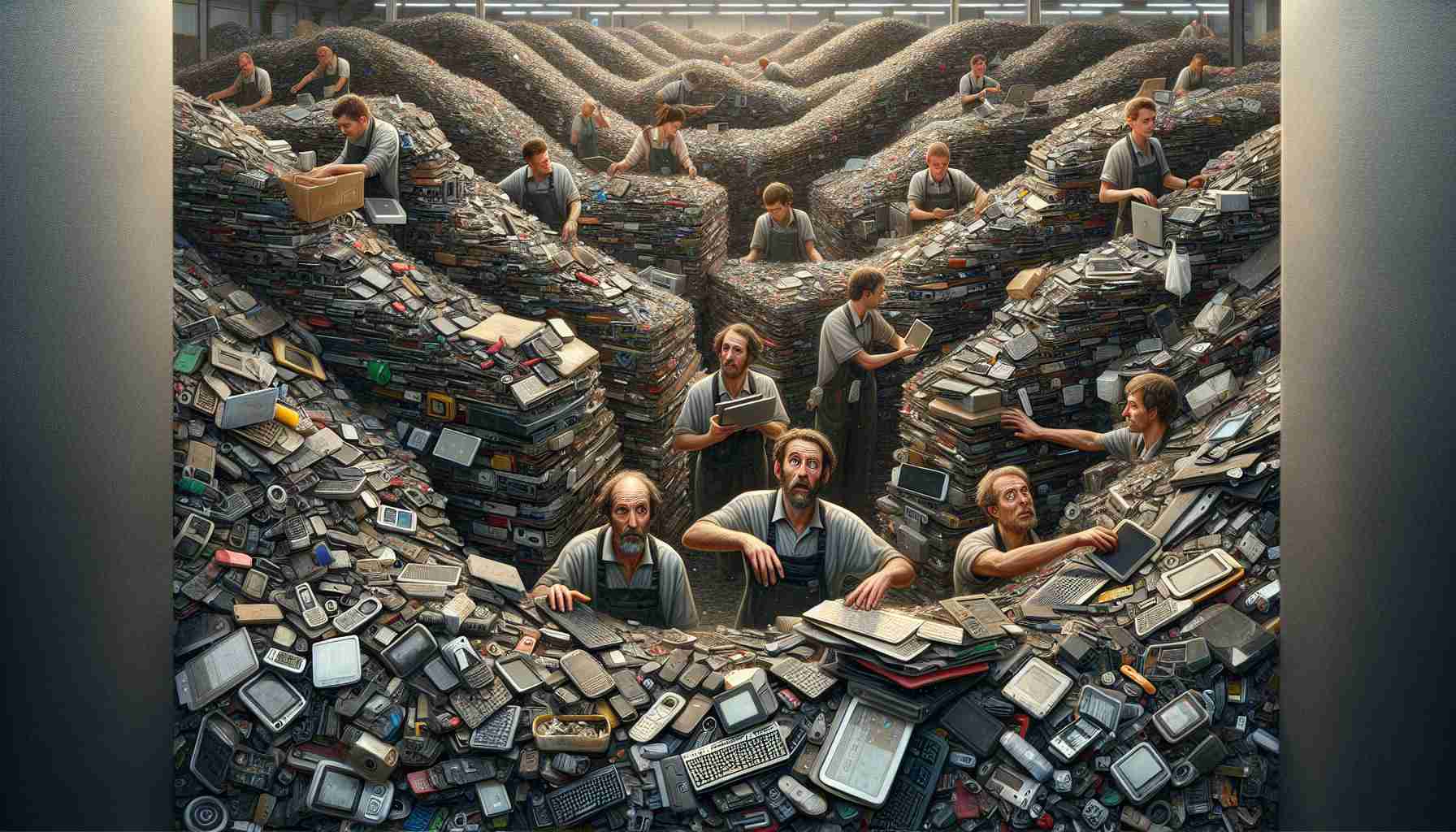Apple commits to environmental sustainability with its innovative Daisy robot, designed to dismantle over one million phones annually, enhancing the retrieval of precious materials for recycling purposes. In an effort to propagate their sustainable technology, Apple is offering licensing opportunities to external researchers and other electronic manufacturers aiming to refine their disassembly methodologies.
During routine operations, all iPhones destined for recycling are mandated to be destroyed as per Apple’s agreement with its recycling firm, GEEP. However, the reality diverged from this directive when it was discovered that devices were being unlawfully resold instead of being shredded for parts.
In a staggering revelation, audits revealed that numerous Apple devices were unaccounted for, leading to a breach of trust between Apple and GEEP. An unexpected Apple audit unearthed multiple instances of misconduct within GEEP’s facility, such as the presence of intact Apple Watches in prohibited areas, and significant discrepancies in official documentation.
The discovery, that iPhones and other devices which were meant to undergo material recovery were finding their way back onto the market, triggered a lawsuit in 2020. Simply put, products slated for destruction were being stealthily refurbished and sold in unauthorized markets, primarily landing in the hands of Chinese consumers unaware of the devices’ contentious origins.
In response to these events, Apple took decisive legal action, seeking millions in damages, citing a “sophisticated theft operation” led by GEEP employees. This lawsuit highlighted an unexpected side of electronic waste recycling, focusing attention on the need for strict adherence to corporate recycling policies and the importance of secure and transparent supply chains.
Key Questions and Answers:
Q: Why did Apple sue its recycling partner GEEP?
A: Apple sued GEEP after discovering that instead of destroying the devices as per their agreement, GEEP was allegedly reselling iPhones, Apple Watches, and other devices, hence violating the terms of their contract.
Q: What does the incident suggest about electronic waste recycling?
A: The incident raises concerns about the integrity and transparency of the recycling process, emphasizing the importance of monitoring and secure handling in electronic waste recycling operations.
Key Challenges or Controversies:
One of the key challenges in electronic waste recycling is preventing the unauthorized resale of devices that are supposed to be recycled. This can lead to several controversies, including:
– The potential for data breaches if devices containing personal information are resold.
– The undermining of a company’s environmental goals and commitments.
– Legal implications and loss of trust between electronic manufacturers and recycling partners.
Advantages:
– Proper recycling helps to conserve precious materials and reduce environmental impact.
– The partnership with recycling firms can enhance a company’s sustainable practices and corporate image.
Disadvantages:
– Incidents like these can damage the reputation of companies like Apple who are leading in environmental sustainability.
– The resale of devices meant for destruction can contribute to electronic waste issues if not properly tracked and managed.
– Potential data security and privacy concerns.
For updated news and information on Apple’s sustainability efforts, you can visit Apple. This link will lead to the main Apple domain, where available information is up to date and officially provided by the company. Please note that specific subpages may offer more detailed information on environmental initiatives and updates related to the lawsuit; however, without direct access to the content at the time of the query, only the main domain is provided here.
The source of the article is from the blog procarsrl.com.ar
